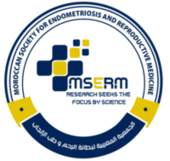Study Curriculum for DERGA 2024-2026
Program Overview:
DERGA is a comprehensive two-year diploma program that offers in-depth training in clinical embryology, reproductive genetics, and andrology. Developed and delivered by leading experts in the field, DERGA aims to equip participants with the knowledge, skills, and practical experience necessary to excel in various roles
within the realm of reproductive medicine.
Curriculum:
The DERGA curriculum covers a wide range of topics, including:
– Embryology techniques and laboratory procedures
– Reproductive genetics counseling and testing methodologies
– Andrology fundamentals and sperm analysis techniques
– Assisted reproductive technologies (ART), including in vitro fertilization (IVF) and intracytoplasmic sperm injection (ICSI)
– Quality control and regulatory compliance in reproductive medicine laboratories
For more details, please download the MSERM Diploma DERGA Program 2024 – 2026 – Download Here
International Accreditation Information
To attain international accreditation by the European Union of Medical Specialists (EUMS), several key factors must be considered:
1. Curriculum Alignment: The DERGA curriculum should align with the standards and guidelines set by the EUMS for clinical embryology, reproductive genetics, and andrology education. This includes ensuring that the curriculum covers essential topics, incorporates practical training, and meets educational objectives.
2. Faculty Credentials: Faculty members teaching in the DERGA program should have appropriate qualifications and expertise in clinical embryology, reproductive genetics, and andrology. They should be recognized by the EUMS or relevant accreditation bodies for their expertise in the field.
3. Facility Standards: The facilities and resources used for delivering the DERGA program, such as laboratories, equipment, and clinical settings, must meet the standards specified by the EUMS to provide a conducive learning environment for students.
4. Assessment and Evaluation: The DERGA program should have robust assessment and evaluation methods in place to measure student learning outcomes effectively. This may include examinations, practical assessments, research projects, and clinical rotations.
5. Quality Assurance Processes: There should be established processes for quality assurance and continuous improvement of the DERGA program. This involves regular reviews, feedback mechanisms, and updates to the curriculum based on advancements in the field and feedback from stakeholders.
6. International Recognition: The DERGA program should be recognized and respected internationally within the field of clinical embryology, reproductive genetics, and andrology.
This may involve collaborations with international institutions, participation in research projects, and adherence to global standards and best practices.
By meeting these criteria and undergoing the accreditation process outlined by the EUMS, the DERGA program can achieve international accreditation, which signifies its quality and adherence to recognized standards in clinical embryology, reproductive genetics, and andrology education.
Evaluation Points for Monthly Exams
| Exam Name | Date |
|---|---|
| Introduction to Clinical Embryology and Andrology | 2-4 OCT 2024 |
| Gametogenesis and Fertilization. | 5-7 Nov, 2024 |
| Embryo Culture and Developmental Biology | 3-5 Dec, 2024 |
| Reproductive Genetics | 2-4 Jan, 2025 |
| Assisted Reproductive Technologies (ART) | 4-6 Feb, 2025 |
| Quality Control and Laboratory Management | 4-6 Mar, 2025 |
| Clinical Andrology | 2-4 Apr, 2025 |
| Endocrinology in Reproduction | 2-4 May, 2025 |
| Pre-implantation Genetic Testing (PGT) | 4-6 Jun, 2025 |
| Laboratory Techniques in Reproductive Genetics | 4-7 Jul, 2025 |
| Advanced Topics in Clinical Embryology | 2-4 Aug, 2025 |
| Research Project | 2-4 Sep, 2025 |
| Laboratory Management and Quality Assurance | 12-14 Oct, 2025 |
| Advanced Techniques in Reproductive Medicine | 4-7 Nov, 2025 |
| Ethical and Legal Issues in Reproductive Medicine | 4-7 Dec, 2025 |
| Assisted Reproductive Technologies (ART) | 4-6 Jan, 2026 |
| Andrology and Male Infertility | 4-6 Feb, 2026 |
| Laboratory Techniques in Embryology | 4-6 Mar, 2026 |
| Internship and Practical Training | 5-6 Apr, 2026 |
| Clinical Applications of Reproductive Genetics | 6-8 May, 2026 |
| ART Procedures – Advanced – Part 1 | 7-9 Jun, 2026 |
| Clinical Internship | 7 – 17 July 2026, 8 – 18 August 2026, 9 – 19 September 2026 |
| Final Examination | 9 Oct, 2026 |
Videos for Reviewing Lessons
Videos for reviewing lessons will be shared here …
